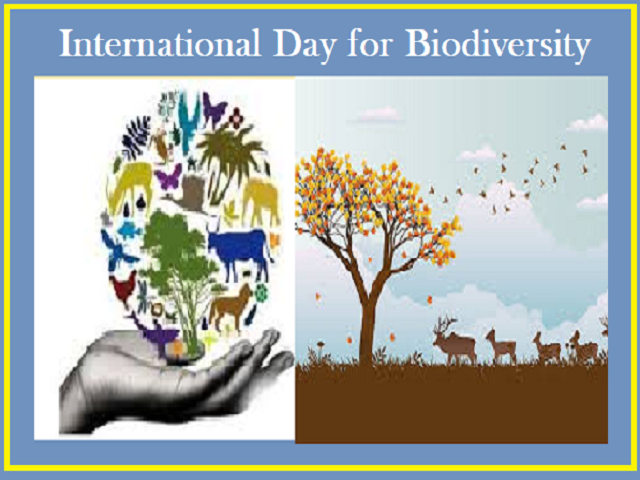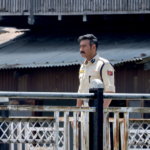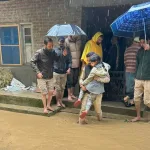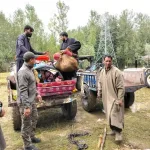We need and we have to ‘be a part of plan’ if we want to safeguard life on earth. Safeguarding life on this planet and reversing biodiversity loss is not the job of government alone, it requires action from all segments of the society. Being a part of the plan is infact a call to all the stakeholders to halt and reverse the loss of biodiversity by supporting the implementation of the Kunming-Montreal Global Biodiversity Framework also referred to as the Biodiversity Plan.
The word ‘Biodiversity’ has been generated from two words ‘biological’ and ‘diversity’. It refers to all the variety of life that can be found on earth like plants, animals, fungi and micro-organisms. Also, it refers to the communities that they form and the habitats in which they live. The article 2 of the Convention on Biological Diversity has given a formal definition of Biological diversity. The Biological Diversity there is defined as the variability among living organisms from all sources including inter alia, terrestrial, marine and other aquatic ecosystems and the ecological complexes of which they are part; this includes diversity within species, between species and of ecosystems.
Thus we can say that ‘Biodiversity’ is the combination of life forms and their interactions with each other and with the rest of the environment that has made Earth is a uniquely habitable place for humans. Its rich biodiversity has been a source of life to millions and millions of different organisims on this planet. Biodiversity provides us a large number of goods and services that sustain our lives. It encompasses a variety of life on earth and the natural patterns it forms. The biodiversity we see today is the fruit of billions of years of evolution, shaped by natural processes and, increasingly by the influence of humans. It forms the web of life of which we are an integral part and upon which we so fully depend.
Biodiversity Loss
Unfortunately, when human being today is not looking to fulfill their needs, but has moved towards greed. The large scale destruction of trees, the hunting of animals, the pollution of water bodies, the air we breathe, the degradation of soil and the loss of soil fertility all are the consequences of human being playing with nature. Playing with nature brought havoc on this planet. The most worrisome part is that the human interference with nature has resulted in a loss of biodiversity.
In the last hundred years, more than 90 percent of crop varieties have disappeared from farmers’ fields. Half of the breeds of many domestic animals have been lost, and all of the world’s 17 main fishing grounds are now being fished at or above their sustainable limits. Locally-varied food production systems are under threat, including related indigenous, traditional and local knowledge. With this decline, agro biodiversity is disappearing, and also essential knowledge of traditional medicine and local foods. The loss of diverse diets is directly linked to diseases or health risk factors, such as diabetes, obesity and malnutrition, and has a direct impact on the availability of traditional medicines. Biological resources are the pillars upon which we build civilizations. The loss of biodiversity threatens our food supplies, opportunities for recreation and tourism, and sources of wood, medicines, and energy.
History of IBD
Keeping in mind the importance of biological diversity and the threats to it, the United Nations celebrate International Biodiversity Day or World Biodiversity day on May 22, every year. It is celebrated to thank nature and what all it bring to us. This global event, which is held on the 22nd of May since year 2000; it was created in 1993 but its first seven editions were held on the 29th of December, aims to promote and raise global awareness of issues related to the planet’s biodiversity. When first created by the Second Committee of the UN General Assembly in late 1993, 29 December (the date of entry into force of the Convention of Biological Diversity), was designated ‘The International Day for Biological Diversity. In December 2000’, the UN General Assembly adopted 22 May as IDB, to commemorate the adoption of the text of the Convention on 22 May 1992 by the Nairobi Final Act of the Conference for the Adoption of the Agreed Text of the Convention on Biological Diversity. This was partly done because it was difficult for many countries to plan and carry out suitable celebrations for the date of 29 December, given the number of holidays that coincide around that time of year.
Theme
The United Nations does celebrate this day with different themes every year. Celebrating such days with a specific theme aims to leverage knowledge and spread awareness of the dependency of our food systems, nutrition, and health on biodiversity and healthy ecosystems. This all has the ultimate aim of conserving our precious biodiversity. This year the theme of the day is ‘Be a part of the Plan’. It means each one of us have to make our own commitments, it is in everyone’s best interest to take action and put biodiversity on a path to recovery by 2030. The plan here refers to the Kunming-Montreal Global Biodiversity Framework also referred to as the Biodiversity Plan.
The Kunming-Montreal Global Biodiversity Framework GBF framework was adopted during the fifteenth meeting of the Conference of the Parties following a four years consultation and negotiation process. The historic framework which supports the achievement of the Sustainable Development Goals and builds on the Conventions previous Strategic Plans sets out an ambitious pathways to reach the global vision of a world living in harmony with nature by 2050. Among the Framework’s key elements are four goals for 2050 and 23 targets for 2030. The implementation of the Kunming-Montreal Global Biodiversity Framework will be guided and supported through a comprehensive package of decisions also adopted at CoP15. In adopting the Kunming-Montreal Global Biodiversity Framework, all parties committed to setting national targets to implement it, while other actors have been invited to develop and communicate their own commitments.
Sustainability now is the new developmental paradigm. Unlike the past, when development aimed only at raising the quality of life of only present generation, sustainable development aims at raising the quality of present generation without compromising with the future generations. Sustainable development refers to the various processes and pathways to achieve it. Many challenges confront sustainable development. These challenges also need to be tackled in a manner which is eco-friendly, conserves natural resources, does not harms our biodiversity or becomes a threat to the life on this planet. Biodiversity conservation can go a long way in sustainable development.
It is not wrong to the say that bio-diversity remains the answer to several sustainable development challenges. From nature-based solutions to climate, health issues, food and water security, and sustainable livelihoods, biodiversity is the foundation upon which we can build back better. From ecosystem-based approaches to climate and/or nature-based solutions to climate, health issues, food and water security and sustainable livelihoods, biodiversity is the foundation upon which we can build back better. That is the main message from the CBD, key international instrument for sustainable development.
On this day let all of us also pledge to start from ourselves to make individual commitments to work to prevent biodiversity loss. For halting biodiversity loss, we have to go for practices like organic and natural farming which conserve our biodiversity. At the same time, we have to avoid single-use plastics like plastic straws, coffee cups, plastic cutlery, take out containers or plastic water bottles and promotion of local and indigenous biodiversity for food and nutrition are some of the issues which we have to look into and adopt in our daily life; if we are serious to conserve our biodiversity and our planet.
(The author writes o agriculture and social issues; can be reached at: [email protected])








